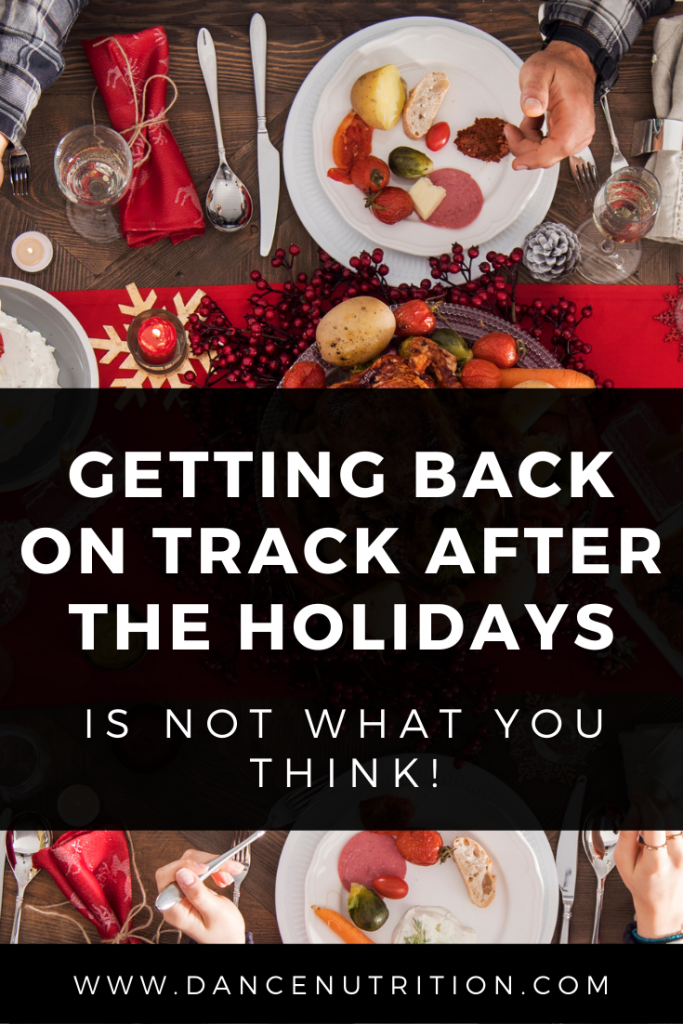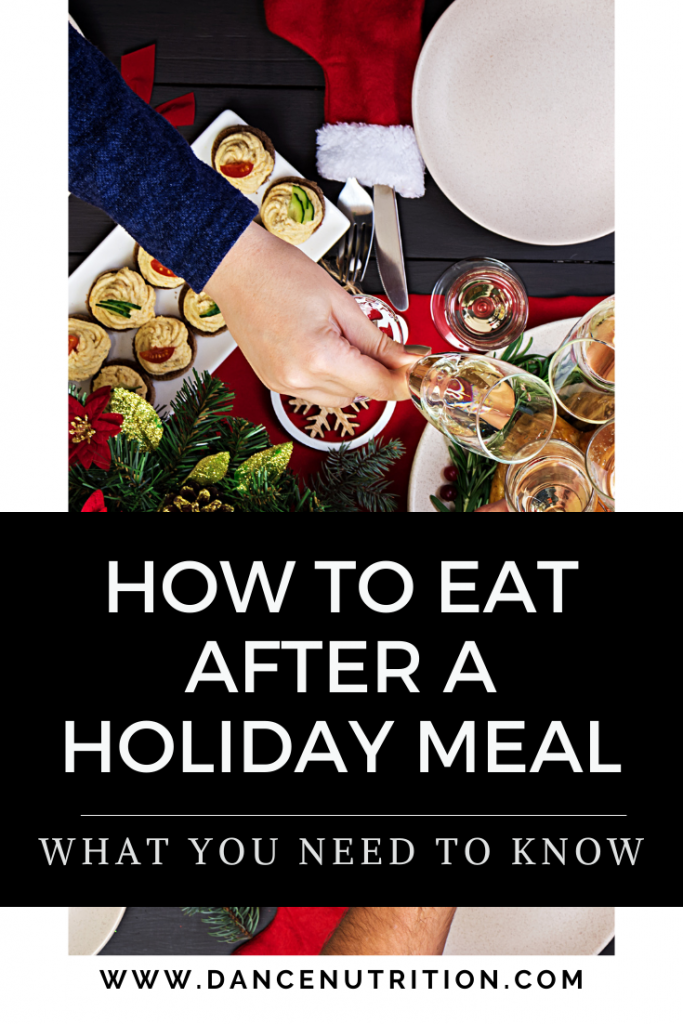Help! My holiday meal was heavier and more indulgent than usual. What should I eat now? I need a reset!
With the Holiday season coming to a close, the pressure to change what we’re eating in an attempt to “get back on track” is high. This pressure is undeniably felt more strongly for those who also experience body-related comments. But the urge to “get back on track” is a rhetoric designed to fail, as New Year’s Resolutions inundated with suggestions to “cleanse,” “detox,” and “start new” often leave dancers at risk for damaging their relationship with food.
We know diets fail within a year of starting and that weight cycling comes with countless negative health implications. So how do you move through post-holiday discomfort without turning to restriction, overexercising, or punishing food rules? Below are five key considerations to support dancers navigating their post-holiday mindset and meal decisions.
#1: Do Not Try To Compensate
Your body knows exactly what to do with an indulgent meal. It digests, breaks down nutrients, distributes what it needs, and stores the rest, just like it does every other day of the year. No cleanse, detox, or punishing workout will speed up this process or reset your metabolism.
When we eat, digestion begins in the mouth. Saliva initiates the breakdown of carbohydrates and prepares the partially-digested food to be moved along your digestive tract. The various nutrients in your food, including carbohydrates, protein, fat, vitamins, and minerals, are broken down and metabolized throughout this process. The fate of these nutrients is determined by your body’s needs: some are used immediately, and others are stored for later use. You can learn more about your metabolism here.
Compensatory strategies like drastically cutting calories or forcing an intense workout can quickly throw your body into a negative energy balance. This can reduce metabolic rate, trigger hormonal disruption, heighten cravings, and leave you feeling exhausted and irritable. Your body reads this deprivation as a threat, not a solution.
Psychologically, compensation traps you in the false belief that willpower is the key to eating well. It is not. Diet culture uses willpower to shift blame away from the diet itself when the restriction eventually leads to overeating. The same goes for the common “in moderation” advice (read more about this here).
Bottom line: compensating after the holidays does not restore balance; it damages your relationship with food.
#2: Be Gentle With Yourself
It is completely normal to feel like you ate differently or more than usual during the holiday season. The holidays are not an everyday occurrence, and you may have enjoyed foods you rarely see throughout the year. Instead of criticizing yourself, practice reflection:
- Did you genuinely enjoy these foods?
- Do you wish they were available more often?
- Does it make you sad to wait another year for them?
All of these emotions deserve space.
If you’re still “feeling” your big meal, or feeling “heavy,” realize this reflects a learned response shaped by diet culture. These thoughts often mirror deeper experiences with body dissatisfaction or dysmorphia. If these patterns feel familiar or overwhelming, supportive resources and professional help specific to dancers can be incredibly valuable.
#3: Focus on Permission, Not Punishment
Food should never feel like a reward you earn or a punishment you deserve. You are encouraged to enjoy your favorite foods all year long, and the same applies after the holidays. Your body still needs nourishment, consistency, and rest.
When you shift away from rigidity and toward unconditional permission to fuel your body, you create a relationship with food built on trust, not control. You can learn more about unconditional permission here.
#4: Reconsider Your Resolutions
The holiday season is a vulnerable time for dancers. Diet culture messaging is stronger, louder, and more persuasive. While there is nothing wrong with setting New Year’s resolutions, focus on ones that do not depend on changing your appearance.
Resolutions like eating healthier or cleaning up your diet may seem harmless, but they are often restrictive diets in disguise. Instead, think about sustainable, supportive changes you genuinely want, ones that nurture your growth as a dancer and as a human. For inspiration, explore this guide to creating supportive New Year’s resolutions for dancers. Here are a few I love.
#5: Make Your Nutrition Focus Way Less Obsessive
Even after hearing the facts, you might still feel the pull to “get back on track.” But diving into a strict “clean” eating plan or doubling down on hydration will not help and usually leads to repeating the same cycle of deprivation, overeating, and shame.
Instead, try these gentle micro-steps to support steady energy and mental ease:
- Eat enough calories to meet your body’s metabolic needs.
- Understand the role of deprivation, especially in the realm of “clean eating,” and how it drives overeating.
- Add nutrition in ways that feel doable, flexible, and non-obsessive.
If you want more guidance, consider joining The Healthy Dancer® Diet Detox in January for a sustainable and science-backed alternative to restrictive New Year resets.




